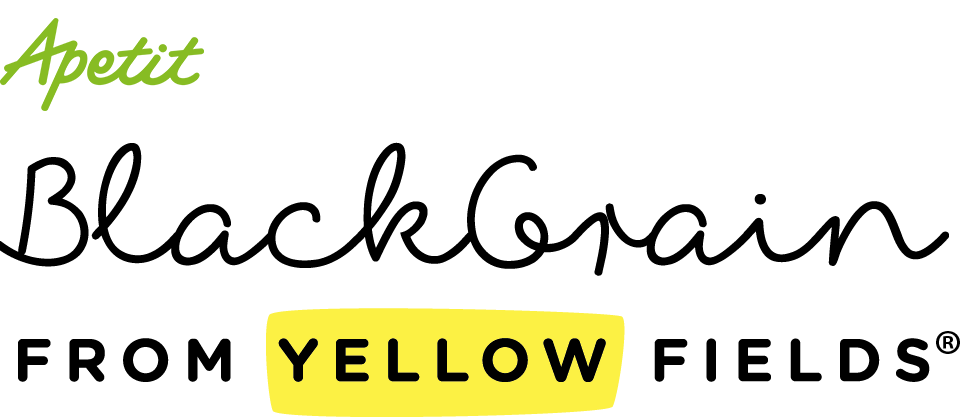Protein – we need it, and we want it. Amping up the protein content of plant-based products is a common struggle for the food industry: how to ensure the availability and digestibility of plant-based protein? Despite the limitations, BlackGrain from Yellow Fields® rapeseed ingredients make the most out of rapeseed without compromising nutritional value or taste.
We all need protein to help our bodies to repair cells and make new ones. However, chances are you’re overemphasizing its volume on your plate.
A sufficient daily amount of protein is 0.75 to 0.80 grams per kilogramme of body weight. A diet too high in protein might injure your kidneys and cause other health problems.
Here’s how BlackGrain from YellowFields® rapeseed ingredients can help to adjust the protein content in recipes while maintaining nutritional balance.
The global protein megatrend leaves other nutrients in the by-lines
We need protein as a part of a healthy diet, but the reality is that we’re overconsuming it. Partly because we have so much protein on the market: advancing technology brings out an ever-increasing range of isolates and alternatives to choose from.
Another reason is the ongoing global protein hype that emphasizes the necessity of protein.
Consumer demands drive the industry. However, if we focus only on protein, we leave behind fibre, micronutrient components, and minerals, and move away from the core of a healthy diet.
That’s why Apetit’s product development team intentionally aimed to create an ingredient beyond a protein isolate or concentrate.
We wanted our products to have three indispensable ingredients for health – protein, fibre, and essential fats – and the beauty of maintaining a balanced diet. The resulting plant-based rapeseed ingredients, BlackGrain rapeseed powder and BlackGrain TVP, do just that.
Rapeseed has an excellent amino acid profile among plant-based proteins
When switching from animal protein to plant-based alternatives, the characteristics of protein and its digestibility change.
The multiple components of plant-based protein, such as small micronutrients, tannins, and phenolic compounds, are healthy in moderate doses and contribute to well-rounded nutrition. However, this complexity makes it more difficult for the body to absorb and utilise plant-based protein fully.
The amino acid profile of a protein reveals how well it will be absorbed into the body. If the content of one or multiple essential amino acids is low, they become limiting amino acids, preventing the body from absorbing, and utilising the rest of the amino acids.
The amino acid profile of rapeseed protein is almost perfect, allowing the body to utilise them more freely. Contrary to soy protein, rapeseed protein isn’t limited by valine or methionine, which are common limiting essential amino acids in legumes.
Pure rapeseed protein isolate has a digestibility between 0.92 to 0.98 out of 1, making it almost fully digested. Even though BlackGrain rapeseed powder and BlackGrain TVP are made of rapeseed, their digestibility is different due to the matrix including fibres and lipids as well.
Vitro analysis – a process that helps to understand and demonstrate protein digestibility and availability – shows that despite the matrix composition, the protein in BlackGrain rapeseed ingredients is still readily available for human nutrition.
BlackGrain rapeseed ingredients maintain or enhance the protein content of food products
While working with texturized vegetable protein applications, Apetit’s product development team was surprised to find that adding BlackGrain TVP to a food application won’t diminish the nutritional value of the product.
However, just as there isn’t a direct conversion of turning a helping of protein into an equal amount of muscle, we can’t say that adding a certain percentage of BlackGrain TVP will lead to an equal amount of protein absorbed by the body.
The protein in BlackGrain TVP and BlackGrain rapeseed powder is also proven to be quite stable in several food applications from vegetable patties to gluten-free bread.
These findings give companies opportunities to play with diverse BlackGrain-fueled recipes to achieve regulation-based label claims, such as high in protein, as well as high in fibre.
Do you have an idea for the next plant-based food phenomenon? Get in touch!


